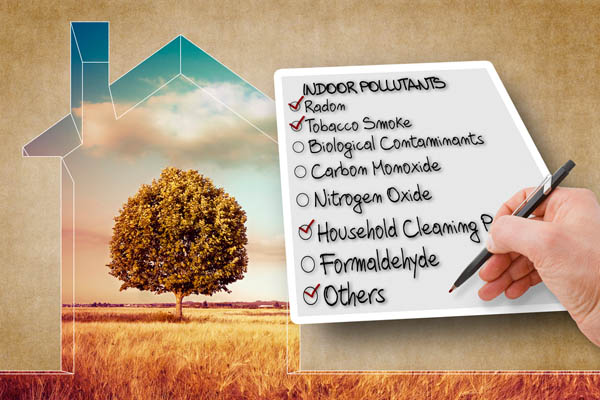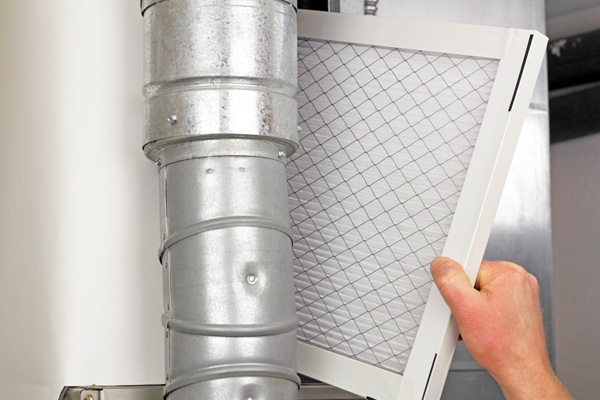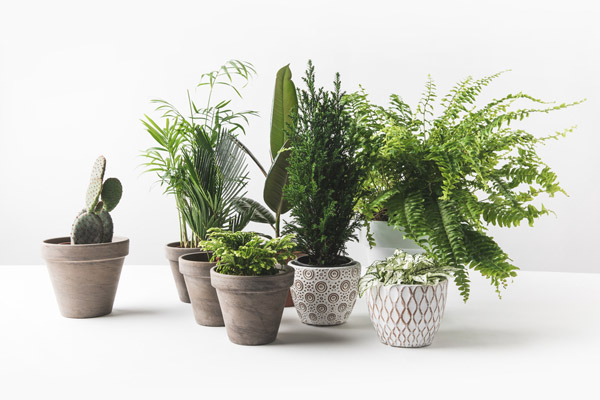IAQ: What You Should Know About Indoor Air Quality

IAQ, or indoor air quality, is a key component of a healthy home or building and yet, it is also often overlooked. Indoor air quality is the condition of air within and around a structure or building. The quality of air indoors is important not only because it affects one’s health but also because it is critical to safety within the building. If the quality of air is bad, it will increase your risk of developing allergies and respiratory problems. This is particularly true for sensitive individuals who have pre-existing health issues and immune deficiencies. When you are aware of the importance of indoor air quality, you will ensure that you never ignore IAQ again for your home or workplace.
Frequently Asked Questions about Indoor Air Quality
Contents
- Frequently Asked Questions about Indoor Air Quality
- Why is IAQ Important to My Home or Workplace?
- How Do Pollutants Enter the Home or Office?
- Are Pollutants That Affect IAQ Dangerous?
- Where Do I Look for Air Pollutants?
- Can the HVAC System Eliminate Air Pollutants?
- Are There Certain Types of Air Filters That I Should Use for My HVAC System?
- Should I Change My Air Filters Frequently?
- Can Indoor Plants Improve IAQ?
- Are There Other Types of Products That Can Help Improve IAQ?
- Conclusion
- Call Point Bay Fuel For Effective Indoor Quality Solutions
Understanding the importance of IAQ is the first step to knowing how to promote better indoor air quality. Below you will find the most common indoor air quality FAQ.
Why is IAQ Important to My Home or Workplace?

In general, homes and buildings are designed as enclosed spaces, mainly to accommodate a built-in HVAC system. Doors and windows are usually kept closed while cracks and gaps are sealed off. Unfortunately, enclosed spaces will also trap pollutants including dust, dirt, pollen, mold spores, pet dander, chemical fumes, and viruses. Of course, opening windows and doors periodically will help minimize the level of pollutants indoors but this is far from practical. Since many people stay indoors for prolonged periods, frequent exposure can increase their risk of health issues.
How Do Pollutants Enter the Home or Office?
Many types of pollutants that affect IAQ are made of tiny particles. Dust, for example, can come from common building materials like wood, fabric, insulation, and wallboard. Pets and humans also produce dust from dead skin cells that are sloughed off naturally. If you keep pets inside the house, they can contribute to dust problems each time they shed off skin, hair, scales, or feathers.
Other types of pollutants like pollen may be brought in indoors, usually by humans, pets, boxes, or luggage. Some may be carried in by the wind. Pollutants may also already be present indoors. Viruses and bacteria, for example, may grow indoors. Without proper hygiene or maintenance, their levels might increase and affect IAQ negatively.
Are Pollutants That Affect IAQ Dangerous?

Not all types of pollutants are harmful but one that you should worry about is the chemical type. Chemical substances are produced from common household products such as air fresheners. Others might be released by furniture finishes and gas stoves. The most dangerous types of air pollutants include carbon monoxide (CO2), radon, lead particles, and asbestos. Asbestos is a real problem in older homes. Certain organic pollutants, including mold and mildew, should also be considered dangerous, particularly when ingested or inhaled.
Where Do I Look for Air Pollutants?
Air pollutants are already present in indoor air. They are fairly common and prevalent and it is next to impossible to eliminate them completely. Certain conditions can also encourage the presence of air pollutants. If you have unregulated moisture indoors, you will likely encourage the growth of mold and mildew. The type of environment you have may also encourage the increase of air pollutants. In general, you can expect higher levels of pollutants in areas such as the kitchen, bathroom, and basements. They also grow in furniture, carpets, and dirty appliances.
Can the HVAC System Eliminate Air Pollutants?
An HVAC system that has a working filtration system should be able to eliminate indoor air pollutants. However, the system has to be maintained regularly and its filters should be replaced periodically.
Are There Certain Types of Air Filters That I Should Use for My HVAC System?

The type of air filters you use will depend on your preferences and budget. The most common products you can find in the market include:
- High-Efficiency Particulate Air (HEPA)
- Ionizers
- Activated Carbon
- UV Filters
HEPA filters have a high filtration level, capable of trapping about 99.97% of tiny particles as tiny as 0.3 microns. Ionizers electrically charge air molecules, producing ions that eliminate microbes and particulates. Activated carbon filters use activated carbon particles that trap particulates through adsorption, thereby eliminating them from the air. UV air filters use ultraviolet rays to kill microorganisms, making them harmless.
Should I Change My Air Filters Frequently?
The frequency at which you need to replace your HVAC air filters will depend on certain factors. These factors include:
- the area or size of the house and building
- the type of filter used
- the presence of pets
- the level of indoor pollution
In general, however, HVAC air filters must be cleaned and replaced every 30 days or so. Your air filter will usually work for as long as 60 days but this will depend on the factors mentioned above. If you are using high-quality filters, these may not require cleaning or replacement for about 90 days. Keep in mind, however, that every home or building is different. To determine if you need to clean or replace your air filter, check it each month. If the filter is dirty or saturated with particulates, it is time to replace it.
Can Indoor Plants Improve IAQ?

Certain plants are quite effective in eliminating harmful chemicals in the air and improving their quality. Consider plants such as Devil’s ivy, philodendrons, chrysanthemums, peace lilies, Boston ferns, and spider plants to bring indoors. These are quite effective in absorbing toxic substances and regulating humidity levels. Plus, they add a wonderful aesthetic touch to indoor space.
Note, however, that plants can only work well in indoor spaces that are well-kept and maintained. Severely polluted indoor air or structures that do not have the type of equipment that helps eliminate pollutants effectively will require more than plants to keep the level of IAQ ideal. If you love plants, why not combine them with a reliable air-purifying or filtration system instead?
Are There Other Types of Products That Can Help Improve IAQ?
Other than HVAC air filters, there are products that are as effective in eliminating pollutants indoors and improving IAQ. A UV lamp, for example, is effective in eliminating pathogens that exist due to the presence of mildew, mold, and microorganisms. Adding a UV lamp indoors can help prevent allergies and illnesses. If you have a problem with dust, pet dander, pollen, and chemical fumes, it may be better to add an air purifier. This will help eliminate problematic particulates in the air and make your indoor space safer. If you are unsure about what to use, ask your HVAC contractor for suggestions to improve your IAQ.
Conclusion
IAQ is actually easy to maintain as long as you clean up regularly and maintain your HVAC system. If indoor air quality is a serious concern for your home or office, call an HVAC professional for recommendations on what you can do and the type of equipment you can use to keep your indoor space safe and comfortable.
Call Point Bay Fuel For Effective Indoor Quality Solutions

Point Bay Fuel is considered the leading heating and cooling service provider in Monmouth and Ocean Counties, New Jersey. All of our technicians are certified and have the training and expertise to perform a range of services, from tune-ups and installations to repairs and replacements. We guarantee that our service costs are the most competitive in the county. We focus on helping you find the best solutions for your heating and cooling needs over the long term, so your HVAC system will provide you with reliable comfort for years. Give Point Bay Fuel a call today for a free, in-home estimate.
Contact us now by calling (732) 349-5059 to speak to one of our home comfort specialists!
